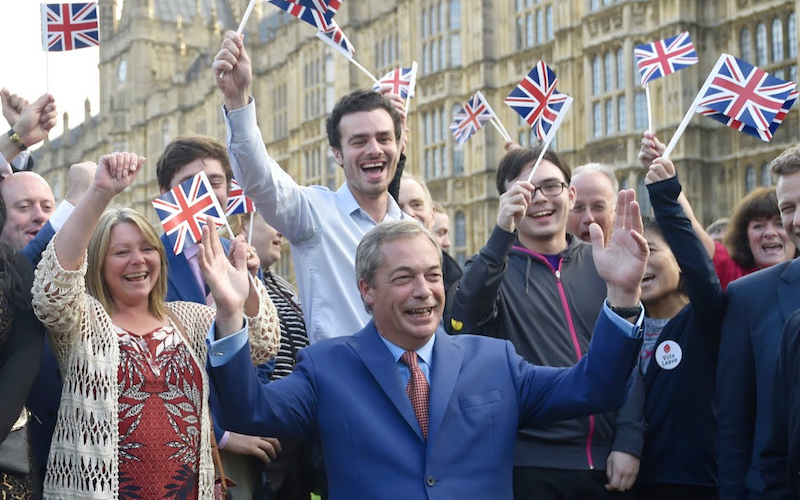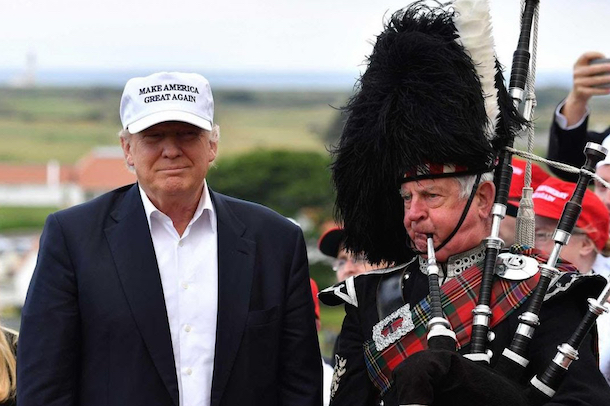
Brexit’s Lessons in Improbability
As the world reels from the once improbable unraveling of the European Union and the United Kingdom, grim prognostications of the economic and political fallout betray a more immediate and ominous lesson. Extreme events are not only likely, and their onset can be quite sudden and counter-intuitive. In short, the world’s black swans are coming home to roost and Brexit may be the smaller of two global shocks this year. The other one, which is not entirely unlikely given the visceral anti-establishment chord Trump has struck among the U.S. electorate, is the prospect of a Trump White House.
For those opposed to the equally improbable outcome of a Trump presidency, Brexit should sound a very loud wakeup call that both the messaging and political ground game need to strike a more discernible, emotive and accessible tone. The pro-Brexit movement won by a narrow margin, in no small measure because the lofty arguments to remain in the EU did not reach the broad political masses evoking sufficient passion to get people to the ballot boxes.
Indeed, much like the pro-Trump movement, there are parallels of urban elitism and fear mongering versus populism and radical change, which clearly the majority of the British public was prepared to accept. A platform based on status quo or one based on opposition to extreme movements is clearly insufficient.
The pro-EU bloc, just like the U.S. Democratic platform and those Republicans attempting to salvage their party from Trump’s Trojan horse, need something more accessible and meaningful to people other than mere opposition. Opposition to something, no matter how risky or vile, does not necessarily stand for something and the public in the west wants their elected leaders to take a stance – one that will shake their political apathy and disbelief in the social compact.

Brexit, like Trumpismo, although the comparison is unfair to the Brexit movement, is something that drew the passion of voters and provided a clear alternative, however extreme, to the real or perceived flaws in the UK-EU relationship. The remain camp, supporting an imperfect status quo, were partly lulled into complacency by poll numbers and a passive, almost academic attitude to the outcome, which they believed erred in their favor. Now the shock has come and the UK must unravel itself from the EU, which is already showing signs that the move for the exit should be hastened. Further splintering of the UK is likely as Scotland makes vociferous calls to vote on its own self-determination with the EU, where it wishes to remain. The irony should not be lost, that amid all the Brexit drama a relatively obscure character with wild blond hair, Boris Johnson, is the heir-apparent to the crestfallen David Cameron, who is stepping down as Britain’s Prime Minister.
The real consequences of Brexit will not be felt for a long time and time tends to blunt the effect of even the most shocking events. The world will become accustomed to this new normal and whatever trade barriers or noisome responses the EU may levy on the Brits will likely trigger a wave of counter measures from an increasingly assertive UK. The vote to leave the EU is not likely to be the canary in globalization’s coal mine as forecasters are predicting. The real danger to global integration lies in the unrequited feeling among the public that the bill of goods of a peaceful, economically integrated world has left far too many people behind. In reaction to this, many voters in the west are prepared to build walls, tear down age old alliances and dissolve economic union. Fleeting promises of economic prosperity, social mobility and cultural integration are giving way throughout the U.S., UK and the EU to strong sentiments of retrenchment, xenophobia and economic self-preservation.
The movement away from global integration, however imperfect, comes at a perilous time when imminent man-made and natural risks require concerted, globally coordinated responses. While Brexit will temporarily blunt the world’s capability to respond in unison to our increasingly uncertain times, the real danger this year lies in the Make America Great Again rhetoric, which smacks of jingoism and dangerous isolation from the world. In our imperfect democracies, Brexit should teach us a lesson. Hoping that better sense prevails is less effective than voting for better outcomes. These outcomes need to be delivered to the public not merely as opposition to the opposition or guarding the status quo, but as a viable vision for the future, one which elicits passion worthy of a vote.

